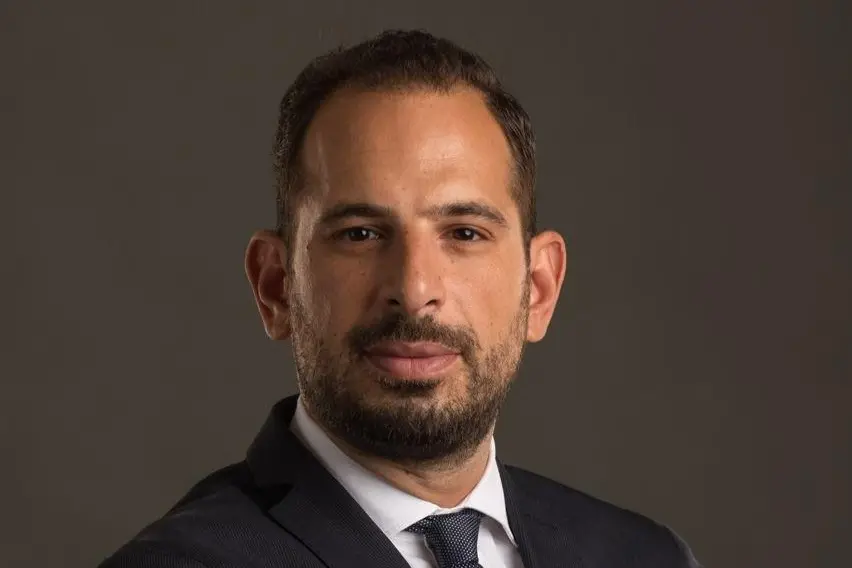PHOTO
In late August, Ergo Media Ventures announced its first investment deal: a 49 percent stake in Film Clinic, one of Egypt’s most prominent TV and film production companies. Between debt and equity arrangements, Ergo is investing a total of $5 million in the 16-year-old production house.
“We are trying to partner with visionaries to help them reach their full potential and expand their footprints not just locally but also regionally and hopefully globally,” said Gamal Guemeih, the fund’s lead investment manager.
With this first investee, he said, Ergo is now looking forward to institutionalizing content production and distribution in Egypt, thus elevating the whole ecosystem and unlocking further investment opportunities.
“We are there to start working on trying to organize the industry of content production and distribution as much as possible,” Guemeih added. “This industry has been resting on the shoulders of individuals [who] have limited abilities to scale up.”
Ergo Media Ventures was established in 2018 by Ayady for Investment and Development, a government-sponsored fund launched in 2015. According to the fund’s website, Ayady seeks to invest in high-impact sectors that also guarantee financial returns. Ergo, which manages a seed fund of EGP 250 million (the equivalent of nearly $16 million), is the fund’s arm for investment in both traditional and digital media domestically.
CORPORATIZING FILM
Film Clinic was founded in 2005 by renowned producer and screenwriter Mohamed Hefzy. In recent years, the company has produced some of Egypt’s most internationally acclaimed titles, many of which have featured at the Cannes Film Festival. The recent deal aims at corporatizing the company and turning it into “a quasi-virtual Hollywood studio system” with very distinct departments and clear processes, Guemeih said.
“Around the globe, the industry has been split between institutions and independent producers,” he noted. “Both work hand-in-hand. We used to have the same division in Egypt back in the first half of the twentieth century.”
In the 1960s, he explained, the whole industry was nationalized under the umbrella of the Public Cinema Agency. “By the 1970s, the state [had] dismantled that agency, and the industry became reliant exclusively on independent producers. So, we ended up with no institutions […] similar to the studios in Hollywood or other places around the world.”
POTENTIALLY PERFECT TIMING
Guemeih, who previously served as Associate Vice President in Private Equity at EFG Hermes, believes the time is ripe for Ergo to corporatize small creatives along global standards and thus rejuvenate the industry.
“Media production is an economic driver. People should deal with it as a key strategic industry with an economic impact. It is not just a cultural undertaking,” he said, adding that this industry can contribute to creating jobs, attracting FDIs as well as promoting tourism. “How can you do that? We do it by creating institutions and vehicles that are investment-ready.”
Guemeih believes fast-paced digital transformation coupled with the evolving media consumption patterns of the region’s large young population have created an unprecedentedly high demand for local content.
“The on-demand concept has changed a lot of things,” he said. “You have much more control of what you want to watch and when to watch it. Now we also hear about the concept of binge-watching in the Arab world.”
“Once you institutionalize the industry, you will improve the quality and the quantity of the content you produce […] and hence cater to the needs of young demographics around the world,” he added.
In recent years, streaming giants such as Netflix, HBO, Amazon and OSN have landed in the region. According to a report by the London-based Digital TV Research, the number of on-demand video subscriptions in the MENA region is expected to jump from 10.95 million in 2019 to 27.16 million in 2025.
“The rise of the giants around the world requires that you have your own institution to keep up with what is going on around the world,” said Guemeih. “This is turning into a global landscape. You cannot continue to work on an individual level. You need to have institutions that can scale up and have different bargaining power with global giants.”
MOVING BEYOND FILM
Ergo is not restricting its prospective deals to film production.
“Theoretically speaking, my scope can extend anywhere from a film production company all the way to music digital distribution platforms. We are also looking into e-books as well as movie theatres,” he said.
The government has taken control of many local press and satellite channles in Egypt. The government has even tried to control the entertainment scene by monopolizing the production of TV drama on local channels, a situation that many critics say undermines creativity.
Guemeih still believes the lack of institutionalized entities remains the main obstacle to the growth of the industry. “The inefficiencies and vulnerabilities created by the one-man-show culture of most production companies has taken its toll on the industry and affected its ability to evolve and compete. Yet there is currently a lot of room for significant improvement.”
(Reporting by Noha El Hennawy; editing by Seban Scaria)
Disclaimer: This article is provided for informational purposes only. The content does not provide tax, legal or investment advice or opinion regarding the suitability, value or profitability of any particular security, portfolio or investment strategy. Read our full disclaimer policy here.
© ZAWYA 2021





















